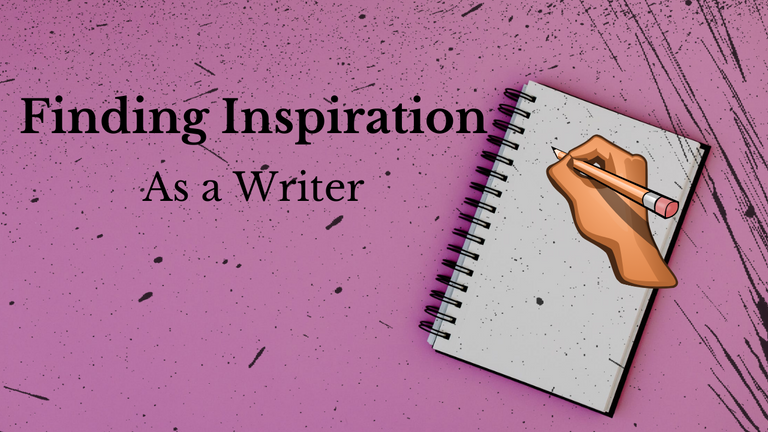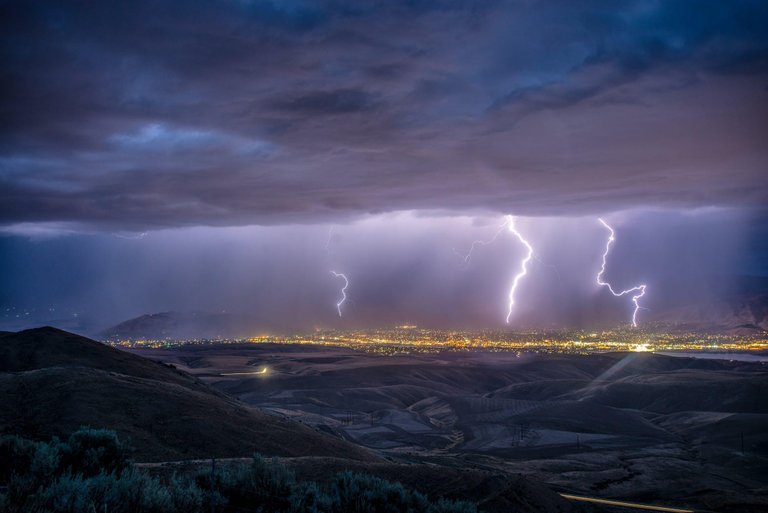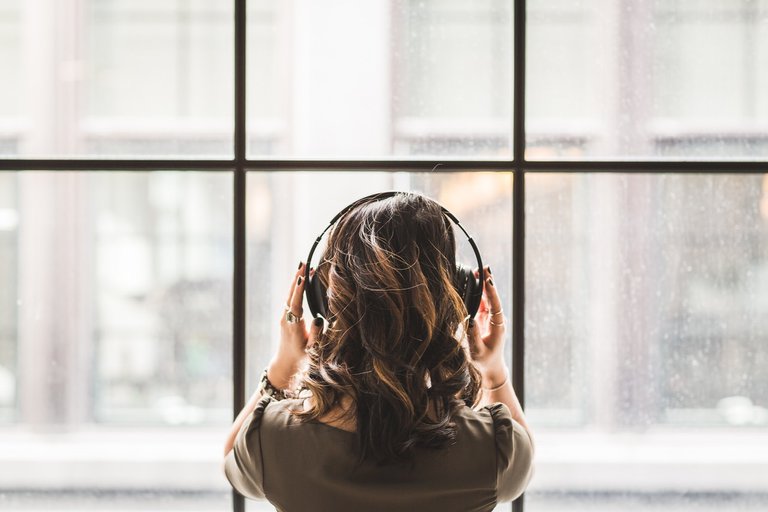
Base Image by Tara Winstead
Finding Inspiration
As a creator, your art depends on you having inspiration. Unlike certain jobs, you cannot just clock in, do your tasks, and clock out. Writing, similar to other forms of content creation, requires inspiration and motivation, in addition to time and energy.
How does one go about in finding inspiration? There are many sources which I personally take inspiration from, and it varies from whether I am writing a poem, a story or an online post. I will share from where you could find inspiration, mostly based on my personal experiences
1. Daily Life
Daily life can often be seen as dull and mundane, but artists have an incredible talent at looking around them and seeing the details that are not always obvious. If you're waiting for a bus, what are the thoughts of the other people around you? What are their motivations? By observing someone's actions, you can get a sense of their state. For instance, a teen with a backpack, constantly looking at their watch. Does that mean they will be late? Is it morning and they are going to school? The people around you all have deep thoughts and a story, so feel free to make up one yourself for them.

Passengers in a train station. Photo by Elena Saharova
An even easier inspiration is if the people around you are conversing in a way in which you can (in a non-creepy way) overhear. Between what is experiences, and the assumptions and character you add in your head, you can create characters or a story. In From the Backseat of a Bus, I drew inspiration from various passengers on my regular trips on the bus. Whether it's a teen girl saying it's scary to be outside after 9pm, or a gentleman mistaking a woman for being pregnant, there were several events around me that captured my attention in ways that I wanted to write about them.
2. Emotional Experiences
An extension to our daily life is ourselves and how we feel. This can be either a reaction to events that happen around us as bystanders, but also our own experiences. I would classify emotions into two different ones: the surface emotions and the deeper ones.
Surface Emotions
By surface emotions, I refer to those that are easily identified and understood. When you are afraid of something or angry at someone, it is not too difficult to understand the basics of what caused this emotion and what you are feeling. Based on evolutionary traits as well as social experiences/values, a lot of fears may be shared by those around you. You can rely on readers understanding these, for instance anger towards a lover who cheats and lies, or fear of the dark. Actions that are reactions to the immediate surroundings are a good starting point to convey emotion, while creating a path to the deeper emotions.

Evident image of a claustrophobic guy. Photo by Mart production
Deeper Emotions
Most of our emotions run much deeper into our consciousness. What makes one person afraid of bees but not another? Why do some actions of a person make us angry, but these same actions are acceptable to everyone else? Our past experiences, perhaps unconsciously, shape a lot of how we perceive events. Life experiences, such as trauma, would often require us to consciously reflect on work on ourselves to understand them.
Not all emotions are negative; often, I find myself difficult to express joy and love in words, because they are so intangible and overwhelming. These emotions are motivations for our behaviour, so they are required (even if not directly written about). Personally, I find it much easier to project these emotions onto characters in stories, and then I let these characters navigate through similar situations in different contexts.
3. Dreams
In the history of psychology, certain fields of psychologists have often analysed dreams as a pivotal part of the unconscious psyche, knowing there are truths and important meanings in our dreams. This can be considered as part of the deeper emotions, but it can sometimes be much lighter and fun. Whole new worlds are formed in seconds, and they generally do not adhere to the same rules of our physical world. Those who are able to dream lucidly and have more control in their dreams may be able to use such imagination even better for worldbuilding.
I recommend writing your dreams in a dream journal (whether notebook or an app on any device) as soon as you wake up. Within time, you start improving the amount of detail you recall from your dreams, and this will help you find some hidden gems that you can weave into your writing.
4. Nature
We often speak about how nature is important for our mental health; and guess what? Our creations come from inside our minds. I know I am sounding cheesy. I am not the kind of person particularly enjoys time in nature, but there are several creators who do. Perhaps that is why in movies/shows, there is often a reference of the artist who goes on a "writers' retreat"; a getaway where you take a break from your everyday life and spend time in quite with your thoughts and with nature, meditating and reflecting.

A thunderstorm on a city. Photo by Frank Cone
There is incredible beauty in nature, both in the aesthetic value, as well as the mechanics of how the world works; how animals evolved and how they behave; how the flora reflects the environment's climate; the marvel of space and laws of physics. Taking time to observe the world around you can generate wonderous ideas. I mean, the ancient Greeks saw Lightning and they created Zeus - trust the creations of your mind!
4. Other Artists and Creations
We often her the phrase "imitation is a form of flattery." I definitely agree with this; obviously, cautioning away from flat out plagiarising, taking inspiration is a natural path of an artist. One can take inspiration both from art of the same form (e.g. writer inspired from other writers), but it may also cross artforms (e.g. writer inspired by visual art)
Inspiration from the Same Artform
As a poet, I tend to take inspiration from both poets and novelists. Whilst reading poetry, I sometimes am stricken by a specific phrase or line, the visual format of the poem, or the whole poem and what it encompasses. One of the most impactful lines I have read is the Blythe Baird's My Body is a Crime Scene -- in this case, the line is also the title of the poem. When I read it, I knew that nobody could've described that experience better than those words. Another poem which I often re-read based is Cuddleslut by John Byrne; it is so relatable that I have used the phrase cuddleslut as a self-description. When a writer managers to convey the exact thing I am going through, it fills me with excitement and drive to try and convey that in my own writing.
Different Artform
One doesn't necessarily have to look into similar artists for inspiration. Any form of art is to be admired and can be built upon. Movies, like The Matrix, may often pose existential and philosophical questions that I am sure have inspired thousands to explore similar life-questioning notions. The visual experiences in movies and series can also expand our experiences and knowledge -- for instance, the idea of a White Christmas is something I have only learnt from movies and shows since I live in Malta, an island in which it never snows.
Other forms also provide a great source of inspiration. I often connect with the lyrics of the songs that I enjoy; which causes me to embody them emotionally. If Taylor or Adele are having a heartbreak album, I will be going through a heartbreak. And yes, that means I will also be writing about heartbreak. Plain and simple!

Listening to music. Photo by Burst
Most of my time is spent playing video games. There are different types of video games, and hence several forms of inspiration. Story-driven games, are in essence, written stories that have added artistic and cinematic elements. But games do not require to have a story to inspire. It can simply be the creation of a unique creature or type of magical abilities that can transport us into a new world, which opens up several possibilities for us. Keep your mind open. Whether its movies, games, music, visual art, architecture or any other form of artistry (even pastry perhaps), everything has a story to tell, and hence there is a new story that can emerge from your perspective.
5. News and Current Events
"Life imitates art" does not exclude that art also imitates life. Certain artforms, particularly those that intend to convey a political or social message (e.g. environmentalism), draw inspiration from current events. An impactful artpiece can take information available as facts and translate into an emotive piece that motivates the reader/viewer to expand their knowledge and adapt their beliefs and change their behaviour.
If your art is primarily fiction, often you may take real-life events, such as wars and riots, and translate them into the fictional world you have created. This can work well both for fiction that takes place in a fantasy/sci-fi realm, as well as for literary fiction that parallels our world and rules. A great example is the topic of conversion therapy, which unfortunately is still practiced in several countries. In The Crucifixion and Resurrection of Malachi the Queer, Damian Jay Clay takes us into a conversion camp, without shying away from the harsh and graphic realities it encompasses. The book had me crying throughout several chapters.
Closing Remark
Inspiration is everywhere, you just need to open your eyes. Whenever I experience a "writer's block", the true problem is not the lack of inspiration, but that I am overthinking and overediting my ideas before they have a chance to breathe.
An easy practice to do if you find yourself in this position is to use a journal to jot down notes, no matter what. Practice writing regardless of the outcome, even if you write a page knowing that you will throw it in the bin. Turn off that critic inside of you and just write, and I promise you, you will find an idea or a sentence that you will latch onto. Take that idea and harness it weave it into something beautiful.
Links
If you liked this post, you might enjoy my recent post, My Own Voice: Not For Everyone, but not for No One.
Below are some of my personal links:
- Official Publications: Poetry by Jeremy
- Free Poetry chapbook: From the Backseat of a Bus
- Ko-Fi: PoetryByJeremy
- Twitter: @PoetryByJeremy